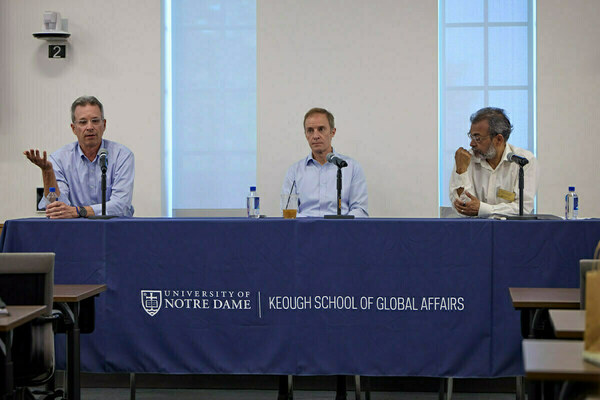 Energy experts: a sustainable U.S. future calls for a balanced approach…
Energy experts: a sustainable U.S. future calls for a balanced approach… In Tandem: What an art historian and chemist learned by teaching a class togetherHow do you bridge the gap between two drastically different fields? For a Notre Dame art historian and chemist, all it took was sharing a classroom for…
In Tandem: What an art historian and chemist learned by teaching a class togetherHow do you bridge the gap between two drastically different fields? For a Notre Dame art historian and chemist, all it took was sharing a classroom for…
- Kroc Institute welcomes six new Ph.D. students, names fellowship recipientsThe fall 2025 semester saw the arrival of six new doctoral students at the Kroc Institute for International Peace Studies, part of the Keough School of Global Affairs. Four of the incoming students make up the first cohort of the newly launched international peace studies doctoral program, with the…
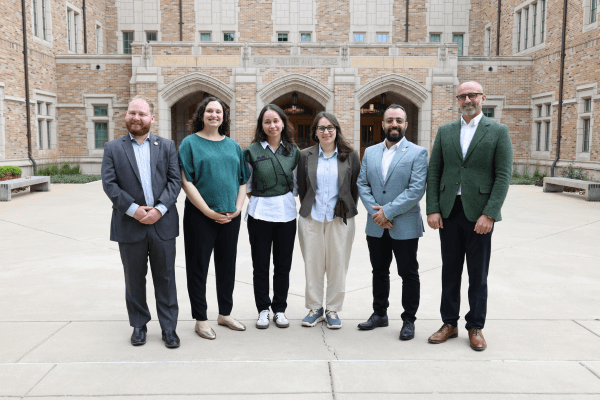
- Researcher shows how immigration policy can strengthen opportunityAmy Hsin wants policymakers and the public to understand how immigration policy choices create barriers that limit opportunity. How do these structural forces hinder people from pursuing education, securing good jobs and planning for the future? And what might better alternatives look like?
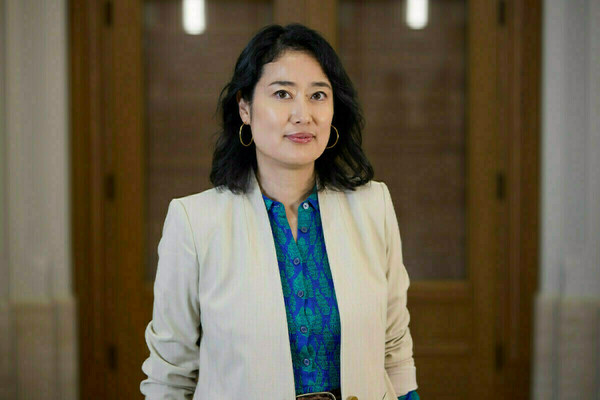
- Notre Dame School of Architecture poised for global leadership through historic investmentThe $150 million gift represents an unprecedented commitment in the 160-year history of American architectural education. In recognition of this landmark gift, the school will be renamed the Matthew and Joyce Walsh School of Architecture at Notre Dame.

- Notre Dame faculty receive prestigious early career awards from the National Science FoundationDuring the 2024-2025 academic year, four researchers in the University of Notre Dame’s Colleges of Engineering and Science received early career awards from the National Science Foundation (NSF). The Faculty Early Career Development (CAREER) Program is one of the NSF’s most prestigious awards…

- Notre Dame Center for Research Computing and College of Engineering leaders host 34th ACM International Symposium on HPDCOver the summer, the University of Notre Dame hosted the 34th ACM International Symposium on High-Performance Parallel and Distributed Computing (HPDC). HPDC brought together more than 100 attendees from around the world to the University for workshops, tutorials, paper and poster sessions, and keynote…
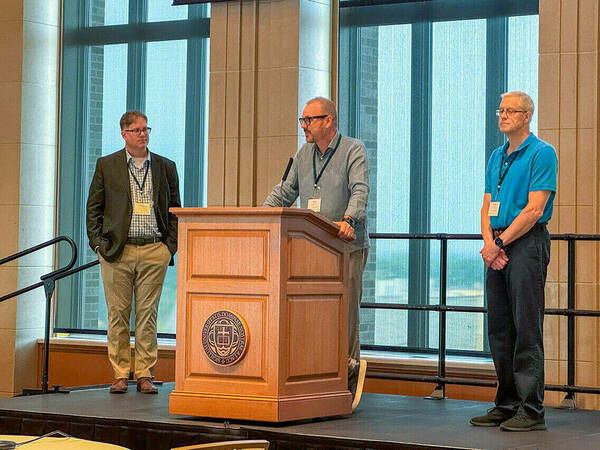
- Postdoc Appreciation Week: Meet three postdoctoral scholars driving research and innovation at Notre DameDuring Postdoc Appreciation Week, the Graduate School and Office of Postdoctoral Affairs celebrate our Notre Dame postdocs, their invaluable contributions, and the lasting impact they have on our drive to be a force for good in the world. To understand the full scope of the talented postdocs that Notre Dame has attracted and the research they are conducting, meet three of them.
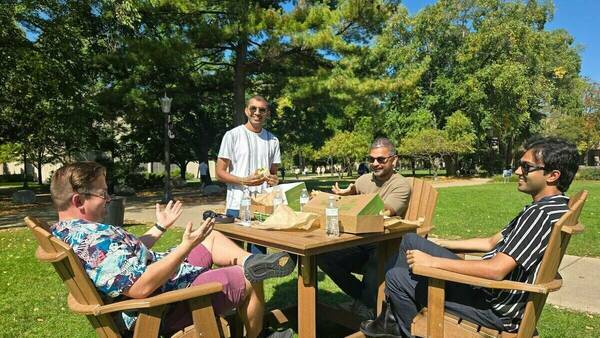
- Notre Dame opens applications for 2026 Provost’s Postdoctoral Fellowship programThe University of Notre Dame is accepting applications for the next cohort of…
- Fighting for Better Virus DetectionAn electronic nose developed by Notre Dame researchers is helping sniff out bird flu biomarkers for faster detection and fewer sick birds. Read the story
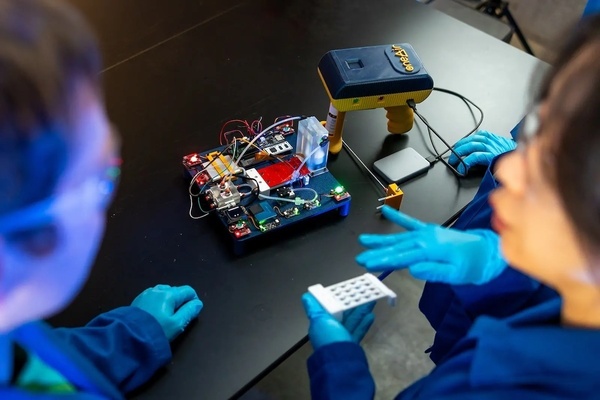
- Notre Dame’s seventh edition of Race to Revenue culminates in Demo Day, a celebration of student and alumni entrepreneurship…
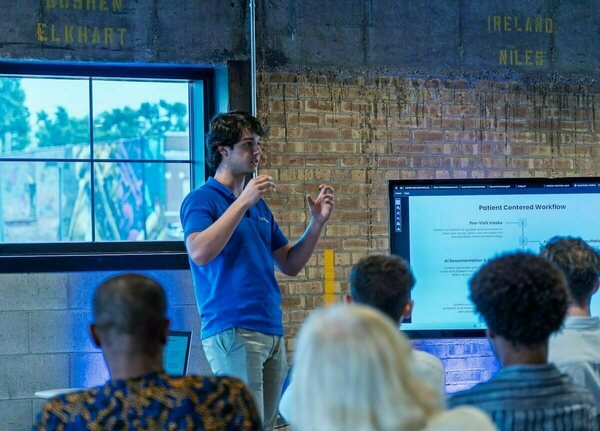
- Managing director brings interdisciplinary background to Bioengineering & Life Sciences InitiativeThis story is part of a series of features highlighting the managing directors of the University's strategic initiatives. The managing directors are key (senior) staff members who work directly with the…

- Monsoon mechanics: civil engineers look for answers in the Bay of BengalOff the southwestern coast of India, a pool of unusually warm water forms, reaching 100 feet below the surface. Soon after, the air above begins to churn, triggering the summer monsoon season with its life-giving yet sometimes catastrophic rains. To better understand the link between the formation of the warm pool and the monsoon’s onset, five members of the University of Notre Dame’s Environmental Fluid Mechanics Laboratory set sail into the Bay of Bengal aboard the Thomas G. Thompson, a 274-foot vessel for oceanographic research.

- Exoneration Justice Clinic Victory: Jason Hubbell’s 1999 Murder Conviction Is VacatedThis past Friday, September 12, Bartholomew County Circuit Court Judge Kelly S. Benjamin entered an order vacating Exoneration Justice Clinic (EJC) client Jason Hubbell’s 1999 convictions for murder and criminal confinement based on the State of Indiana’s withholding of material exculpatory evidence implicating another man in the murder.
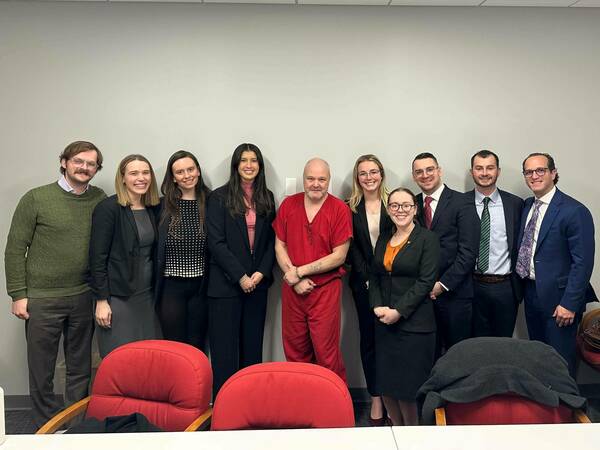
- Notre Dame to host summit on AI, faith and human flourishing, introducing new DELTA frameworkThe Institute for Ethics and the Common Good and the Notre Dame Ethics Initiative will host the Notre Dame Summit on AI, Faith and Human Flourishing on the University’s campus from Monday, Sept. 22 through Thursday, Sept. 25. This event will draw together a dynamic, ecumenical group of educators, faith leaders, technologists, journalists, policymakers and young people who believe in the enduring relevance of Christian ethical thought in a world of powerful AI.
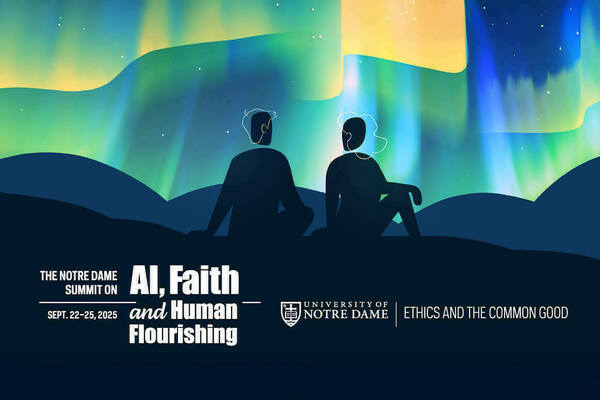
- Preparing Global Leaders: Notre Dame Students Put Early Childhood Development Science into PracticeThis fall, Notre Dame students are turning research into real-world solutions. In a unique course, Early Childhood Development and Poverty Alleviation: A Global Perspective, 27 students are learning how the science of early childhood development can break cycles of poverty — and then applying…
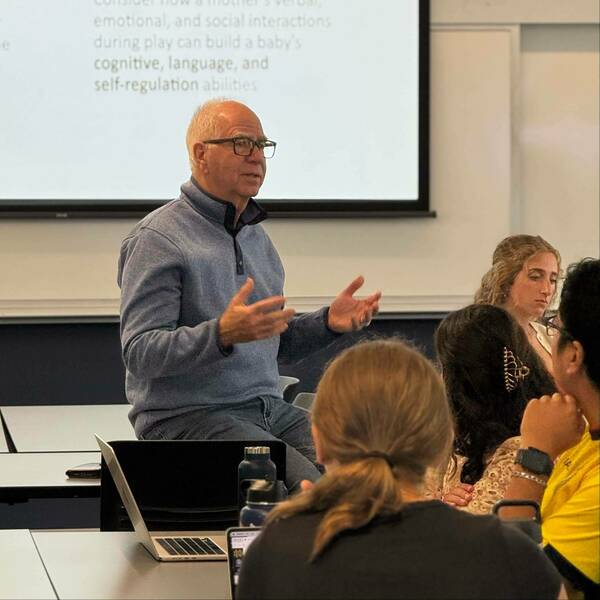
- How can we have better conversations about environmental conservation? New Notre Dame research charts a path.As the planet faces mounting environmental crises, including a decline in global biodiversity, a new study from the University of Notre Dame calls for a seemingly simple yet transformative practice: better conversations. In a co-authored paper published in Conservation Biology, Daniel C. Miller outlines five key principles to foster more effective and inclusive dialogue about conservation. The paper builds on more than a decade of collaborative work in conservation social science and presents a framework to address one of the field’s most pressing yet underexamined issues—how conservationists talk to one another.

- ND research teams awarded funding to address sustainability challenges around the worldNotre Dame's Just Transformations to Sustainability Initiative has awarded funding to three cross-disciplinary faculty teams leading research on pressing sustainability issues—including forest conservation in the Amazon, watershed…
- Fighting to improve hurricane forecastsResearchers at Notre Dame are improving hurricane forecast accuracy, giving officials time to evacuate and protect residents.
- 2025 Naughton Fellowships awarded to four joint faculty projectsThe University of Notre Dame’s Naughton Fellowship program has announced its faculty awardees for the 2025-2026 cohort. Faculty from leading Irish universities and Notre Dame have come together to work on four research projects as a part of the Naughton Faculty…

Loading...


